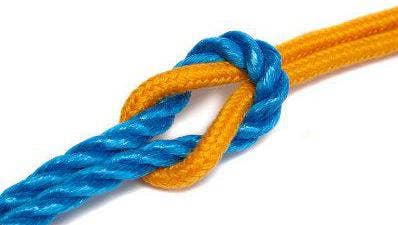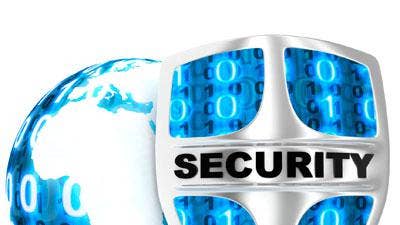Datto CEO McChord On Acquisition Strategy, Being ‘All In’ On MSPs, And The Challenges For Distributors

Acquiring Tech Partners, Trying To Avoid Conflict
Datto has been building an MSP powerhouse. The company, which started as a provider of data protection technology to MSPs, last year acquired remote monitoring and management (RMM) platform developer Autotask and networking technology developer Open Mesh, and has since introduced MSP-friendly virtual desktops, intelligent power strips, and other offerings.
Those acquisitions, and those product introductions, in many cases make Datto competitive to many of the vendors that partner with Datto's RMM platform to provide technologies MSPs can use. Datto's CEO Austin McChord, however, dismisses concerns about such conflicts, and tells CRN that MSPs are free to take advantage of whatever vendors' offerings they prefer.
There is a lot of change going on in the MSP business, and Datto is one of the key vendors at the center of that change.

How do things look for Datto for the rest of 2018 ?
2017, going into 2018, [was] the craziest year of my life, and probably of Datto's existence. We merged Datto with Autotask in December 2017. And with that, the business almost doubled in size. Primarily, the Datto management team is running the group. Getting through all that, learning the product, the teams, the energies. Getting the whole business operating as one has been an enormous challenge. But it's also been incredibly exciting. What I'm really proud of is both businesses have this unified vision around delivering for MSPs. We're just all in in the MSP market. And we see MSPs as the way to get access to the small-business IT market. That's a really big deal. And now we're operating at just incredible scale in this space.
How much of the Autotask team stayed after the integration?
I think we only really lost maybe 10, 20 employees. Granted, there were some changes at the management level. But not a whole lot from a day-to-day employee standpoint. We didn't get rid of a lot of employees between either company.
Did anyone from the Autotask management team come over?
Adam Stewart, who runs our technical team, did. And he now oversees product and engineering for Autotask.

How difficult was it to integrate Datto and Autotask into a single organization?
It would be like asking somebody how hard is it to climb a mountain if you've never climbed a mountain. It's challenging, and I think we did it well. There's a lot of moving pieces with that, and there's a lot of communication. I think it went really well. In some sense, it felt really easy. But in another sense, we worked our tails off trying to make it happen.
It's an enormous amount of work. A very, very large project. And the biggest thing is, how do you do it and not disrupt all the other operations? [We] delivered major improvements on the Datto products and major improvements on the Autotask products. We delivered improvements on support and improvements on the partner programs. All these things kept operating even though we were also bringing two companies together at the same time.
How much integration is there between the legacy Datto and legacy Autotask products?
Tons. The teams are working together improving integrations. If anything, it's helped Datto to become more open. Because Datto is so large, the best way to integrate BDR [backup and disaster recovery] and Autotask together is for both teams to publish open APIs. So then we can share those APIs with anyone else that wants to integrate [with them] as well, rather than try to glue the teams together or use some secret API. We get it all to work together openly.

In addition to Autotask, Datto last year also acquired a networking company, Open Mesh, as well as Backupify in 2014. What is your acquisition strategy going forward?
We're always interested in exciting technologies. We're looking for things we can introduce to the MSP market in a differentiated way. So, for example, when we looked at networking, we realized that no one was bringing MSP-centric networking to the table. And so we did that. And we're really proud and excited about that.
I think there's a bunch of other areas we can do that in. I'm probably not going to discuss them right now.
That was my next question.
Yeah. But we're definitely looking at that. We have an entire corporate dev team at Datto that does pay attention to that. But our No. 1 criteria is to be differentiated and what will bring value to MSPs.

With these acquisitions, Datto is starting to bring on technologies that many of its vendor partners also offer. Autotask, for example, competes with ConnectWise and Continuum. How do you balance those changes with the potential competition with partners?
When businesses get to a certain scale, you end up competing with your best friends in business in lots of different areas. Think about it. Apple and Google compete against each other. But they also partner with each other in a ton of different ways. It's the same thing here. Yeah, there are portions of our portfolio that compete against ConnectWise. But there are also portions of our portfolio where it's super important that we work well with ConnectWise. And the same thing's true [in that] there's portions of our portfolio that compete well against other backup vendors, and there's portions of our portfolio where it's incredibly important that we work really, really well with them. And we're OK with that. And instead, with each different product line, our goal is to be the best in the industry. And we're not going to get in a knife fight with other companies out there. Because you know who ends up losing? The customers.
To be specific, your company has its RMM platform with Autotask, and its Datto data protection line. Will Datto be pushing its Datto technology as best-of-breed data protection on Autotask when other data protection vendors will be pushing their best-of-breed offerings?
Of course, we need to deliver best-of-breed. I don't want to deliver a second-rate anything. It's really important that we do that because you can use eFolder or Infrascale or any other product on the market with Autotask. We're not jamming anything down anybody's throats. That wouldn't be the right way to run an MSP-focused business.

Datto from very early on was an MSP-focused company. How did you get that focus?
They found us. In Datto's first six months of operation, we were selling to end users. And then MSPs actually said, 'Oh, it would be great if you had a reseller program.' So we created a reseller program, and within six months of that, we ended our end-user sales and focused entirely on managed service providers.
How is the MSP business changing in 2018, based on what Datto is seeing?
I think that MSPs are going to end up with a lot more customers. The world is demanding that people take IT and security a lot more seriously. Things like HIPAA, PCI and GDPR are regulations that have real impact. And they touch not only the web giants of the world, but every business out there. These small businesses have to have a real strategy. They have to protect themselves from security threats. They have to be compliant. They have to manage the complexity that comes with these things. And they're going to turn to MSPs to do it.

As you look across Datto's entire line of data protection, networking and RMM technologies, what is the company doing to address issues such as HIPAA and GDPR?
We're HIPAA-compliant. We have a chief compliance officer. I think we're the only ones in the industry that have a compliance department. We've got a fully built-out security team. We provide resources to partners. We get on the phone and talk them through it. We work really hard to meet GDPR requirements as well. So we're involved in leading the way in setting the standard for what it means to be compliant in these spaces.
Have you seen any moves by U.S.-based MSPs to look at GDPR?
Not yet. But I think a regulation like GDPR in Europe is inevitable in the U.S. It's coming.
Are you doing anything to push it?
No, we are not involved in government affairs.

In the past year, we've seen a big push by distributors to move more into the MSP business. What do you see are differences in how broadline distributors and automation platform providers like Datto approach this business?
The distributors are realizing that the future of IT is service-based, and that they need to become managed service providers or they will perish. MSPs are early [in recognizing this.] They've figured it out. And the distributors are just waking up to it. And they're going to be eaten alive if they don't become MSPs. I think it's entirely new. Some of them may be successful in that conversion. I think it's also possible that when you look back five, six years from now, some of them may not even be around any more.
In this case, do distributors become partners or competitors to traditional MSP platform providers?
I think they become MSPs just like all the other MSPs. I don't think they become competitors to the vendors because the distributors don't create solutions. There's no distributor out there writing a PSA or an RMM. They utilize other peoples' products. And in the past, they've made it easier to ask for other peoples' products. But in the services-based industry, it's tough for them to dictate and locate a position in the market. And so they're probably going to have to become MSPs in order to stay alive.